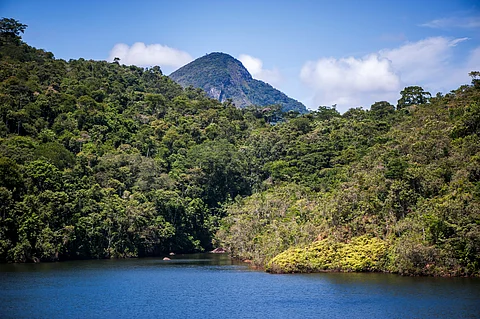

World leaders at 16th Conference of the Parties (COP16) to the Convention on Biological Diversity (CBD) in Rome have reached a historic agreement on financing global conservation goals.
The conference, which had been paused in Cali, Colombia, in 2024, resumed in Rome on February 25, 2025, where officials finalised the agreement after intense negotiations.
This decision establishes a long-term financial mechanism to safeguard biodiversity and ensure the success of the Kunming-Montreal Global Biodiversity Framework (KMGBF).
Susana Muhamad, the COP16 President from Colombia, called for urgent action, emphasising that ambitious plans could not be realised without sufficient funding.
The agreement focuses on two main objectives:
Closing the biodiversity finance gap: The agreement establishes long-term financial mechanisms under the CBD. It includes enhancing existing funding sources and exploring new ones, such as private sector contributions and blended finance.
Governments pledged to mobilise $200 billion annually by 2030, including $20 billion per year by 2025, rising to $30 billion per year by 2030 from international sources.
The Global Environment Facility (GEF) has already allocated over $3 billion in support of biodiversity goals, leveraging an additional $22 billion, including $1.9 billion from the private sector.
Implementing Article 21 of the CBD: This will establish a permanent financial mechanism under the authority of the COP, ensuring sustained long-term funding for biodiversity protection.
Countries from the Asia-Pacific, Latin America and the Caribbean, and small island nations sought clearer details in the final agreement. Brazil, representing BRICS nations, proposed changes to ensure funding sources and financial mechanisms were clearly defined. After extensive discussions, officials finalised the agreement.
A major achievement at COP16 was the launch of the Cali Fund, which ensures fair benefit-sharing from the use of digital information on genetic resources.
Industries such as pharmaceuticals and biotechnology, which use genetic data from nature to create products, will now be required to share a portion of their profits to support biodiversity conservation.
At least 50 per cent of the Cali Fund’s resources will be allocated to Indigenous communities, recognising their vital role in safeguarding biodiversity.
Governments also strengthened regulations for tracking and reporting progress on biodiversity goals. The updated KMGBF plan will now incorporate clear methods for measuring global progress.
The first global assessment of biodiversity commitments will take place at COP17, where governments will evaluate whether they are on track to meet the 2030 targets.
Furthermore, reports will now include input from young people, women, Indigenous communities, and private businesses, ensuring broad participation in conservation efforts.
With funding commitments secured and a monitoring system in place, the next challenge is to translate these decisions into tangible action.
The world will be watching as countries prepare for COP17, to be held in Armenia in 2026, where progress on biodiversity finance and conservation goals will be reviewed.